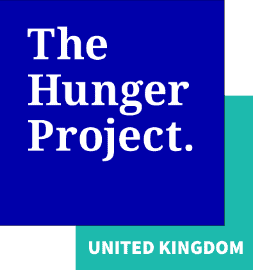WASH: Water, Sanitation and Hygiene
World Water Day 22 March, 2014
THP Perspective: Access to clean water is widely seen as the challenge of the 21st Century, and is a critical component of good nutrition. Traditional top-down, service delivery approaches have not produced sustainable results or led to the behavioural changes necessary, particularly in halting open defecation – a major cause of water-borne disease and malnutrition.
Safe sanitation is a gender issue – men rarely see it as a priority, yet around the world women are forced to get up before dawn to relieve themselves without risking sexual assault – a profound violation of human rights and basic human dignity. Lack of safe sanitation facilities is a reason why thousands of girls are kept out of school.
Key Interventions:
- The Hunger Project communities, and particularly The Hunger Project’s trained women leaders, place high priority on WASH and mobilise their communities in mass-action campaigns for total sanitation.
- CLTS: community-led total sanitation is the methodology developed at IDS.
Key messages:
- Investing in sanitation is one of the most efficient investments for poverty reduction.
- What medical discovery has saved more lives than any other? Soap.
Global Campaigns and Initiatives:
- World Water Day – March 22
- World Toilet Day – November 19
Key agencies:
- UN-Water comprises representatives from 31 UN Agencies
- The UN Human Rights Commission has a Special Rapporteur on the right to clean water and sanitation.
- WaterAid is a leading NGO in the sector, and works closely with THP.
- Water for Humans is an innovative NGO that partners with THP-Mexico.
Key reports and data sources:
- The World Water Development Report (WWDR) is an annual and thematic report that focuses on different strategic water issues each year
- The Global Analysis and Assessment of Sanitation and Drinking-Water (GLAAS) reports on the capacity of countries to make progress towards the MDG water and sanitation target and on the effectiveness of external support agencies to facilitate this process.
- Malaria Maps Reveal that 184 million Africans still live in extremely high-risk areas (The Lancet)
- The Importance of Multi-sectoral and Integrated Nutrition Strategies
- World Water Day 2014
- Community-Led Total Sanitation (CLTS) Approaches to Creating Open Defecation Free (ODF) Community
- Care for Child Development: Improving the care of young children (UNICEF and WHO)
- New Freshwater Conservation and Water, Sanitation, and Hygiene Integration Guidelines by Africa Biodiversity Collaborative Group (ABCG)
- We Can’t Wait: Women, Sanitation and Hygiene 2013
- Social Mobilisation and WASH


